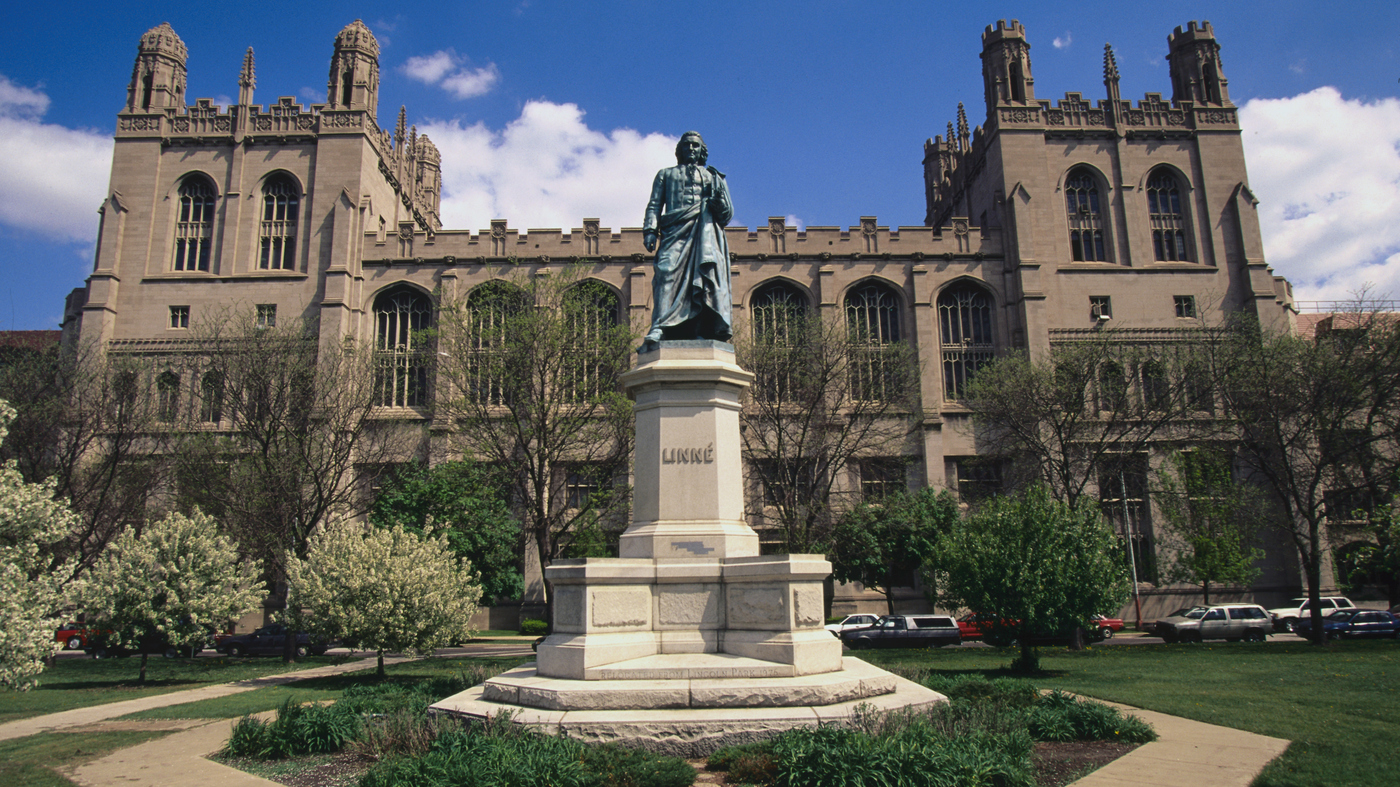18 Leading Quantum Computing Research Institutions in 2024

So far, 2024 has been a banner year for quantum computing research. Several quantum-based companies have moved to go public, including at least two announcements of special acquisition companies being created to accommodate interest in quantum research. Multinational corporate mergers have also started to happen in the quantum industry.
According to data gathered from Microsoft Academic, several research institutions are consistently producing research papers, conference presentations and other forms of academic output in the quantum computing area. The groups represent both corporate quantum research teams and university-based scientists.
We’ve organized a list of 18 of today’s most respected – leading – quantum computing research labs in the world. Enjoy!
You may also like:
11 Quantum Research Institutions
1. IBM
IBM was mentioned in about 786 pieces of quantum research output so far this year.

IBM Quantum Computing research institute
IBM research teams and equipment were involved in the output including the papers: Quantum Computer Systems for Scientific Discovery, Evidence of the entanglement constraint on wave-particle duality using the IBM Q quantum computer (Physical Review A) and Application of Quantum Machine Learning to High Energy Physics Analysis at LHC using IBM Quantum Computer Simulators and IBM Quantum Computer Hardware, presented at 2021 Proceedings of 40th International Conference on High Energy physics.
2. Massachusetts Institute of Technology
Massachusetts Institute of Technology — better known as MIT — is a world-renowned center for science, technology and engineering. MIT has been a pioneering hub for work in the quantum computing research field.

MIT logo
In 2024, scientists from MIT played roles in major research on quantum computing technology that was published in leading scientific journals, including: Room-temperature photonic logical qubits via second-order nonlinearities, which appeared in Nature Communications; Capturing Non-Markovian Dynamics on Near-Term Quantum Computers, Physical Review Research; and Creating Majorana modes from segmented Fermi surface, again in Nature Communications.
Find out more about quantum information science at MIT here.
3. Harvard University
Harvard continually makes lists for various scientific achievements. It is perennially on the top of the quantum research list. According to Microsoft Academic, this legacy as a global leader in quantum science continues in 2024, with more than 1,800 entries in the quantum computer category on the research.

Harvard's Quantum research institute
Some of the quantum computing studies published both in major scientific journals and pre-print servers, such as ArXiv, that include Harvard researchers are: Quantum Computing lab at the Frontiers of Biological Sciences in Nature Methods; Quantum Information and Algorithms for Correlated Quantum Matter in Chemical Reviews and Quantum Computing and Quantum Information Storage in Physical Chemistry Chemical Physics.
Here’s more information about Harvard’s quantum initiative.
4. Max Planck Society
The Max Planck Society, established in 1948, has produced 20 Nobel laureates and is considered one of the world’s most prestigious research institutions worldwide. Its scientists are producing cutting-edge research in the fields of quantum computing, as well.

A portrait of the Max Planck Society
This year, MPS is among the leaders in quantum computing research. So far in 2024, Max Planck Society scientists have published “A Auantum-logic Gate Between Distant Quantum-network Modules” in Science and “Topological Two-Dimensional Floquet Lattice on a Single Superconducting Qubit” in Physical Review Letters, among dozens of other published research pieces.
Quantum science at the Max Planck Society is covered here.
5. University of Chicago
In the U.S. the heartland is also the heart of quantum land, thanks, in no small part, to the University of Chicago.

The University of Chicago building
In 2024, University of Chicago researchers have taken part in several key quantum computing studies including, “Engineering Dynamical Sweet Spots to Protect Qubits from 1 / f Noise,” which appeared in Physical Review Applied; “Quantum Solver of Contracted Eigenvalue Equations for Scalable Molecular Simulations on Quantum Computing Devices,” published in Physical Review Letters and “Orchestrated trios: compiling for efficient communication in Quantum programs with 3-Qubit gates,” which was presented at ASPLOS 2021.
Chicago Quantum Exchange is a great resource for learning more about quantum science at the U of Chicago.
6. Chinese Academy of Sciences
The first Chinese entry on the list of top quantum computing labs is a research powerhouse in China. In just a few short months, the Chinese Academy of Sciences has amassed more than a thousand entries.

Chinese academy quantum computing research institute
Most recent entries in quantum computing advances are “Observation of energy-resolved many-body localization,” published in Nature Physics; “A concise review of Rydberg atom based quantum computation and quantum simulation,” Chinese Physics B and Solving quantum statistical mechanics with variational autoregressive networks and quantum circuits, which appeared in Machine Learning Science and Technology. They also invested a lot in a development of quantum computing labs.
Read more about the academy’s quantum advances here.
7. University of California, Berkeley
The University of California, Berkeley is located in the heart of California’s quantum country. Its output thus far this year — and its solid industrial and government connections — make it a top ten entrant on our list of the most productive quantum research institutions.

brainchildvn/Flickr
Berkeley researchers contributed to published papers include: “Quantum approximate optimization of non-planar graph problems on a planar superconducting processor,” in Nature Physics; “Efficient and noise resilient measurements for quantum chemistry on near-term quantum computers,” npj Quantum Information and “Materials challenges for trapped-ion quantum computers,” Nature Reviews Materials.
Read more about the University of California’s quantum advances at Berkeley Quantum.
8. University of Maryland, College Park
Home of one of the first quantum computer firms to go public (IonQ) and a constant addition to TQD’s “best of” lists, the University of Maryland, College Park is showing no signs of slowing down research output in the quantum computing labs.

quantum at UMD
UoM quantum research teams participated in the following studies and published papers: “Probing many-body localization on a noisy quantum computer,” Physical Review A; “Microwave Superconductivity,” IEEE and “Conformal field theories are magical,” Physical Review B.
Learn more about the Joint Center of Quantum Information and Computer Science.
9. Princeton University
The second Ivy League school in the list of top quantum research institutions is probably a no-brainer, if that term can be used without irony. Princeton has a well-established reputation as being one of the world’s centers of academic and research excellence. That reputation continues in quantum.

Princeton announces plan for fall 2020, guidelines for undergraduates returning to campus
This year, Princeton researchers have participated in several quantum advances reported in journals and on pre-print servers, including “New material platform for superconducting transmon qubits with coherence times exceeding 0.3 milliseconds,” Nature Communications; “Spin Digitizer for High-Fidelity Readout of a Cavity-Coupled Silicon Triple Quantum Dot,” Physical Review Applied and “CutQC: using small Quantum computers for large Quantum circuit evaluations,” ASPLOS 2021.
Learn more about quantum at Princeton here.
10. Google Quantum Computer Research Center
From the company that developed the first quantum computer to assert quantum supremacy, Google researchers continue to make impressive strides in the quantum computing field.

Image: Google Handout
For this year, the company’s scientists have taken part in studies, including “How to factor 2048 bit RSA integers in 8 hours using 20 million noisy qubits,” in Quantum; “High-Fidelity Measurement of a Superconducting Qubit Using an On-Chip Microwave Photon Counter,” in Physical Review X and “Power of data in quantum machine learning,” in Nature Communications.
Explore the possibilities of quantum with Google.
11. University of Tokyo
Japan is a hub of research into technology and information science. This research prowess extends to the quantum computing era.

Wikimedia: Kakidai
The University of Tokyo is home to scientists who took part in the following recent studies and published papers: “Blueprint for a scalable photonic fault-tolerant quantum computer,” which appeared in Quantum; “Post-Hartree–Fock method in quantum chemistry for quantum computer,” published in European Physical Journal and “Event Classification with Quantum Machine Learning in High-Energy Physics,” presented in Computing and Software for Big Science.
Read more about this quantum initiative at the University of Tokyo.
12. University of Science and Technology of China
Our second entry to the list from China continues to astound the world with its scientific advances in quantum computing.

University of Science and Technology of China - Wikipedia
Scientists from the University of Science and Technology of China have been involved in quantum computing lab studies, including: “Testing a Quantum Error-Correcting Code on Various Platforms,” in Chinese Science Bulletin; “Experimental exploration of five-qubit quantum error correcting code with superconducting qubits,” in National Science Review and “Quantum walks on a programmable two-dimensional 62-qubit superconducting processor” in Science.
Here’s the Division of Quantum Physics and Quantum Information at USTC.
13. University of Washington
The Seattle-based University of Washington is growing into its role as one of the leaders in quantum science research and, in particular, in quantum computing. A recent surge in published research papers about quantum computing include University of Washington researchers leading the charge.

UW ECE, ME, CSE seek outstanding faculty candidates in quantum information science & technology – UW QuantumX Initative
Those projects include: “Sparse-Hamiltonian approach to the time-evolution of molecules on quantum computers,”The European Physical Journal,” “Entanglement rearrangement in self-consistent nuclear structure calculations,” Physical Review C and “Qubit Regularization of Asymptotic Freedom” in Physical Review Letters.
You can read about one U of W quantum initiative here.
14. University of Oxford
The University of Oxford’s contributions to quantum science are legendary. The university is now one of the leaders sherparding the world from classical to Noisy Intermediate Scale Quantum — NISQ — and beyond.

Photo: IBM
Here are a few pieces of research Oxford scientists are involved in that have implications in quantum computing: “Multi-exponential error extrapolation and combining error mitigation techniques for NISQ applications,” which appeared in npj Quantum Information; Non-Gaussianity as a Signature of a Quantum Theory of Gravity, which was published in PRX Quantum and The prospects of quantum computing in computational molecular biology, which appeared in WIREs Computational Molecular Biology.
Here’s an example of a quantum computer project at the University of Oxford.
15. Duke University
Duke University is probably not a research institution that most immediately associate with quantum computing compared to some of the other institutions. (Duke’s research trail only leads back to 1998, while some of the other universities have quantum computing research that originated in the 1980s, even the 1970s…)

Duke University website
But that’s changing as the following quantum projects show: “Materials challenges for trapped-ion quantum computers,” Nature Reviews Materials; “Optimizing Stabilizer Parities for Improved Logical Qubit Memories,” ArXiv and “Practical Applications with Quantum Computers,” presented at Quantum West.
As an example of Duke’s forward-looking quantum progress, check out this initiative.
16. National Institute of Standards and Technology
The National Institute of Standards and Technology supports quantum science both in the U.S. and around the world. The soul of NIST’s support is in the prowess of its quantum researchers.

National Institute of Standards and Technology Logo
Here are a few NIST-backed research projects: “Ray-Based Framework for State Identification in Quantum Dot Devices,” PRX Quantum; “Towards data-driven next-generation transmission electron microscopy,” Nature Materials and “Control and readout of a superconducting qubit using a photonic link,” in Nature.
Read more about NIST’s support of quantum in this TQD article.
17. Stanford University
Seated geographically right in the hottest of technological hot spots, Stanford University is among the top quantum research institutions for the high tech world.

Image: Stanford
In quantum computing, its recent publications show scientists involved in the following projects: “Quantum Permutation Synchronization,” in ArXiv; “Recycling qubits in near-term quantum computers,” in Physical Review A and “Connecting and scaling semiconductor quantum systems,” presented at Photonic and Phononic Properties of Engineered Nanostructures XI
Read about Stanford’s Quantum Computing mission here.
18. California Institute of Technology
You can’t have Caltech without the tech part and it’s rapidly becoming a quantum research powerhouse.

California Institute of Technology - Wikipedia
Just some of the work done recently by scientists at California Institute of Technology include: Power of data in quantum machine learning, in Nature Communications; “Low rank representations for quantum simulation of electronic structure,” in npj Quantum Information and “Quantum Computation of Finite-Temperature Static and Dynamical Properties of Spin Systems Using Quantum Imaginary Time Evolution,” in PRX Quantum.
CalTech quantum projects include the Institute for Quantum Information and Matter.
A Note on How This List Was Created
The above list of the top quantum research institutions is not meant to be exhaustive. Microsoft Academic was used to pull a list of the top institutions publishing or presenting research on quantum computing, so far in 2024. Obviously, it is just a snapshot in time. The list could change because of publication schedules, timing of conferences, search terms, etc. and could include other limitations.
If you found this article to be informative, make sure to explore more of the current quantum technology news here. If you would like to explore enterprise end users of quantum in more detail, you should check out our dedicated market intelligence platform.
这篇文章是关于2024年量子计算研究的概览,列出了18个领先的量子计算研究机构,并提供了一些关于这些机构的研究成果和出版物的详细信息。以下是对这篇文章的详尽中文笔记:
文章概览
- 标题: Top 18 Institutions Leading Quantum Computing Research In 2024
- 作者: Matt Swayne
- 发布日期: May 16, 2022
量子计算研究亮点
- 2024年对于量子计算研究来说是一个标志性的一年,有几家基于量子的公司计划上市,包括至少两家为量子研究兴趣而创建的特殊收购公司。
- 跨国公司在量子行业内开始合并。
研究机构列表
- IBM: 今年在量子研究产出中被提及约786次。
- 麻省理工学院(MIT): 在量子计算技术研究中发表了重要研究。
- 哈佛大学: 以超过1800项量子计算机类别的研究条目继续其作为全球量子科学领导者的遗产。
- 马克斯·普朗克学会(MPS): 在量子计算领域发表了前沿研究。
- 芝加哥大学: 参与了多个关键的量子计算研究。
- 中国科学院: 在短短几个月内积累了超过一千项的量子计算进展。
- 加州大学伯克利分校: 以其工业和政府联系以及今年的产出而成为量子研究机构的前十名。
- 马里兰大学学院公园: 量子计算实验室的研究产出没有放缓的迹象。
- 普林斯顿大学: 参与了多个量子研究进展。
- 谷歌量子计算研究中心: 参与了量子计算领域的多项研究。
- 东京大学: 在量子计算时代延续了其在技术和信息科学领域的研究实力。
- 中国科学技术大学: 在量子计算实验室研究中取得了进展。
- 华盛顿大学: 在量子科学领域成为领导者,特别是在量子计算方面。
- 牛津大学: 在量子科学领域做出了传奇性的贡献。
- 杜克大学: 量子计算研究的踪迹可以追溯到1998年。
- 美国国家标准技术研究所(NIST): 支持量子科学,其量子研究人员的实力是支持的核心。
- 斯坦福大学: 在量子计算领域,其科学家参与了多个项目。
- 加州理工学院(Caltech): 正在迅速成为量子研究的强国。
作者信息
- Matt Swayne: 拥有数十年的新闻和传播背景,在一所R1大学担任科学传播者超过12年,专门将高科技和深科技转化为普通受众的语言。自The Quantum Insider成立以来,一直担任作家、编辑和分析师。
结语
文章最后提到,这个列表并不是详尽无遗的,它是基于2024年至今在量子计算领域发表或展示研究成果的顶尖机构的快照。列表可能会因为出版物的时间表、会议的时间安排、搜索术语等因素而变化。
相关链接
- The Quantum Insider - 提供量子技术行业的媒体和市场情报。
这篇文章为我们提供了一个关于当前量子计算研究领域的深入了解,展示了全球范围内在这一领域活跃的顶尖研究机构和他们的一些重要研究成果。
- Giscus
Last update: 2024-4-18